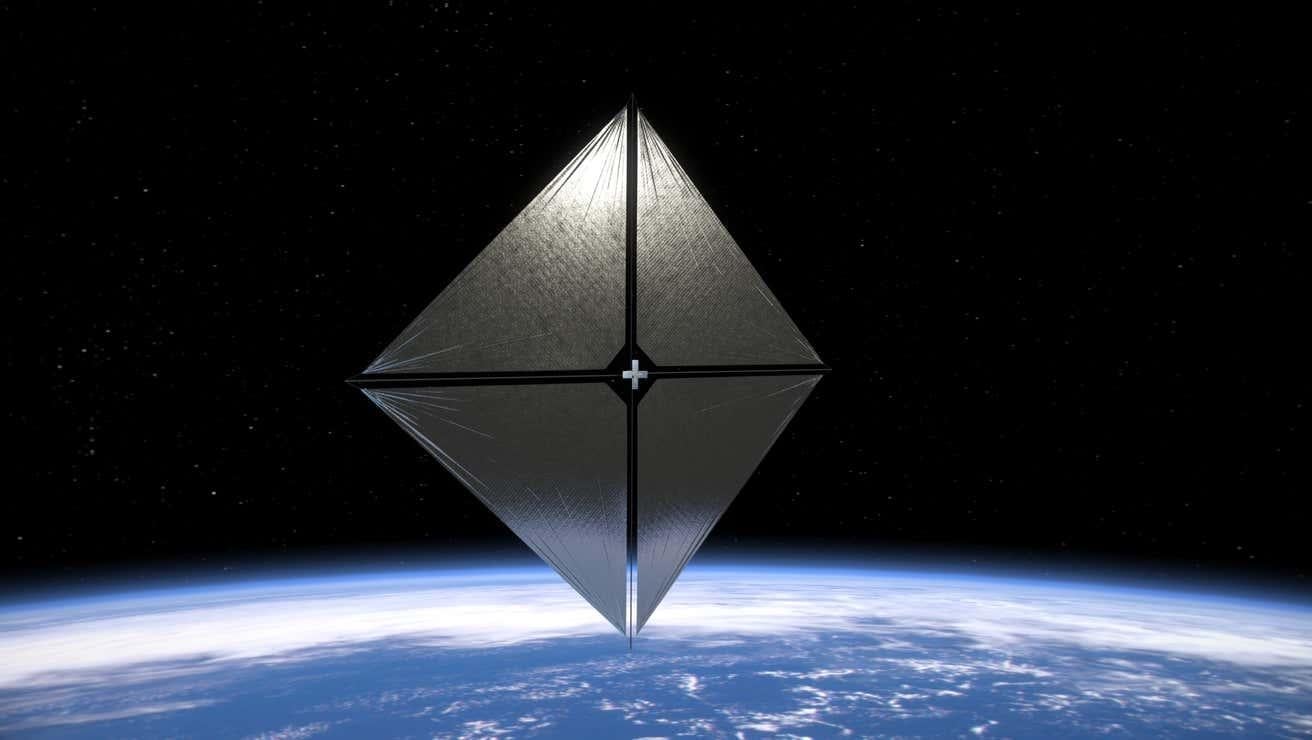NASA will test sunlight-powered space travel after the launch of a solar sail
The mission rode aboard Rocket Lab's Electron, reusing one of the rocket's boosters for the first time

A new experimental mission by NASA is now flying in orbit, aiming to use photons from the Sun to propel its way to higher altitudes.
Suggested Reading
Update: April 24, 8:33 a.m. ET: Rocket Lab’s Electron blasted off at 6:32 p.m. ET on April 23, successfully delivering both payloads to low Earth orbit. The short delay was on account of issues with ground equipment.
Related Content
Original article follows.
The Advanced Composite Solar Sail System (ACS3) is scheduled for launch on Tuesday during a launch window that opens at 6 p.m. ET. The mission will lift off on board a Rocket Lab Electron rocket from the company’s Launch Complex 1 on the Mahia Peninsula of New Zealand. You can tune in to the launch through Rocket Lab’s live stream on its website or watch it through the feed below.
NASA’s ACS3 is designed to test new materials and deployable structures for solar sail propulsion systems, including new composite booms that will be used to unfurl the solar sail once it reaches orbit. The composite booms are made from a polymer material; they’re lightweight while still being stiff and resistant to bending and warping when exposed to different temperatures. They work the same way as a sailboat’s boom, except they are designed to catch the propulsive power of sunlight rather than wind. Once unfurled, the solar sail will stretch across 30 feet (9 meters) per side.
Solar sails run on photons from the Sun, causing small bursts of momentum that propel the spacecraft farther away from the star. If a spacecraft is able to surpass the drag from Earth’s atmosphere, it could potentially reach very high altitudes.
Rocket Lab’s Electron will deploy the microwave-sized cubesat about 600 miles (966 kilometers) above Earth, which is roughly twice the altitude of the International Space Station. From there, the solar sail will be high enough to gain altitude and overcome atmospheric drag using the tiny force of sunlight on the sail, which is roughly equivalent to the weight of a paperclip resting on your palm, according to NASA.
NASA isn’t the only one being experimental on this mission. Rocket Lab is reusing an Electron booster for the first time during the upcoming launch. The company’s “Beginning Of The Swarm” mission will launch its Electron rocket with a booster that was already used for a previous launch.
On January 31, the “Four Of A Kind” mission saw the Electron rocket’s first stage fall back towards Earth with the help of a parachute before splashing down in the Pacific Ocean around 17 minutes after liftoff. The company recovered the rocket booster and is now reusing it for another flight. Rocket Lab has been experimenting with Electron’s reusability, hoping to inch itself closer to its main industry rival SpaceX. Electron’s upcoming launch will be a major test of the company’s ability to reuse the two-stage vehicle.
The Electron rocket will also be carrying NEONSAT-1, an Earth observation satellite for the Korea Advanced Institute of Science and Technology.
